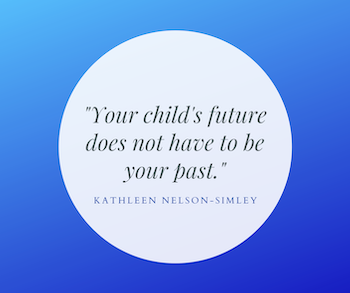Blog
To Tell The Truth Or Not
Author: Kathleen Nelson-Simley
Posted: Thursday - November 5, 2020
“Miss Kathleen, did you drink alcohol when you were my age?”
I froze in my tracks the first time a student asked me this question as I was teaching an alcohol and drug prevention program years ago.
I didn’t know how to answer the question. In fact, I have no recollection of how I answered it – if I did at all.
Whether you are a parent or someone who works with kids, one of the most challenging situations we can be faced with is when kids want to know what we did when we were their age – specifically when it comes to risky behaviors.
Kids are naturally curious. It should be no surprise they would be curious about our past. Most of the time, they are looking for another person’s experience to help them determine what their own current or future actions might be.
Here’s the dilemma you face:
If you DID drink alcohol, smoke or other things that were risky when you were their age and you share this with them they could see it as an excuse or permission for them to try it, too – even if you experienced negative consequences, talk about how bad it was for you or did it just once or twice. Kids already think they’re invincible and nothing bad will happen to them. They could see you as someone who did it and turned out just fine years later which affirms their belief about themselves. Worst yet, they could see you as a hypocrite if your expectation is that they not do the same things.
If you DID NOT drink, smoke or engage in other risky behaviors at their age and you share this with kids, they might think you don’t understand them, can’t relate to their situation or they won’t believe you.
It seems neither response is better than the other and no response isn’t a good option either.
So, what’s the solution? What should your response be?
Here are some helpful suggestions:
-
Don’t overreact by getting mad, defensive or ignoring the question.
-
Treat the question as an opportunity to talk with your child about your expectations of them. Ask them a question back to start a conversation. Ask, “Why is my past behavior important to you?”
-
Ask, “Will what I did or didn’t do years ago make any difference to the decisions you are going to make?” If your child answers yes, ask how.
-
Be sure to note to your child, “It’s important to me to help you figure out what your future is going to be like. My experiences, whatever they were, are not likely to help you do that. You can have or be whatever you want in your future. I want you to get the best future you can possibly get and to help you do what it’s going to take to get it because you deserve it. That’s my commitment to you.”
-
If you choose to disclose information about your past behavior, be sure to do it in a one-on-one conversation where you can help your child process it in a way that is helpful to them. Don’t glamorize your past behavior. Speak about the negative consequences your past behavior may have had on your life or future and what you wish you would have done differently.
-
Take their question as an opportunity for you to express your expectation of them when it comes to engaging in risky or other behaviors. Remember the rule of thumb when it comes to setting expectations: You get what you expect. So, expect the best for your child.
Most importantly, keep the conversation focused on your child and not on you. Their future can be anything they want it to be.

Just because you may have done something when you were their age does not mean you’re a hypocrite by expecting something different for your child. Don’t let your past influence what you want for your child or anyone’s child. If you want something different or better, then expect and express it.
The real truth is…Your past is your past. Your past does not need to be your child’s future.
P.S. This is my fourth blog post in a series of blogs I am writing on parenting. If you haven't read my three earlier posts, check them out below. I've had a lot of requests from my followers as to if they can re-print my articles. You are more than welcome to re-print or share them with your parent friends and family, the parents you work with, the parents of your students or others. The only thing I ask is that you give credit to me as the author: Kathleen Nelson-Simley of KNS Learning Solutions. Thank you!



